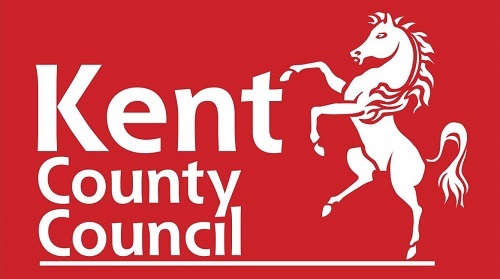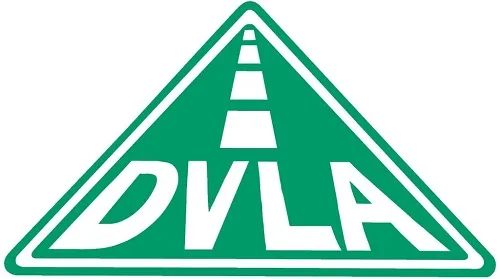Reduce Environmental Impact By Recycling Your Vehicles By 2030
Reclamet Limited
View ALL WASTE SERVICES
Reclamet Limited
View ALL WASTE SERVICES






Ban on new petrol and diesel cars in the UK from 2030 under PM’s green plan
According to a recent government announcement, the sale of new diesel and petrol cars will be banned in 2030, and in the UK, new hybrid car sales will be banned in 2035. Boris Johnson will announce the measures as part of a “green industrial revolution” that he believes will create new jobs in a low-carbon economy—source: www.bbc.co.uk.
2030 petrol and diesel car ban: 12 things you need to know
1. Why are diesel and petrol vehicles being banned?
The ban is expected to reduce greenhouse emissions and improve air quality. Petrol cars emit CO2, and Britain has a legal target to cut greenhouse gases to net zero by 2050. At the same time, diesel vehicles produce nitrogen oxides and particulate matter, which have been linked to increased risk of respiratory illnesses, lung cancer, heart disease, and many other conditions.
Modern exhaust systems and additives, such as AdBlue, can reduce these emissions. However, electric cars are still cleaner as zero emissions are produced at the point of use, except for particles from tyres and brakes. Electric cars are even more hygienic when powered by energy produced using renewable sources, such as wind and solar.
2. What are the rules on hybrid cars?
Hybrids will be banned from selling in new car showrooms from 2035 to five years after pure petrol and diesel. Hybrids come in many forms, but they combine an electric motor with a petrol or diesel engine for greater efficiency. Plug-in hybrids can be charged up to around 50 miles of electric motoring before the engine kicks in. All of these will be affected.
3. Are trucks and other commercial vehicles included in the petrol and diesel ban?
Yes, the sale of new diesel vans will be banned from 2030, and diesel lorries will be phased out.
4. Will I be able to buy a second-hand petrol or diesel car after 2030?
The ban only affects sales of new petrol and diesel vehicles, so yes, you’ll still be able to buy and sell used cars powered by combustion engines after 2030 and hybrids after 2035.
5. What will happen to the value of my petrol or diesel car?
Resale values of traditional combustion engine cars are expected to be hit as demand falls and cities outside London follow the capital in introducing ultra-low emissions zones. As 2030 approaches, used car values are expected to plummet, as manufacturers still offering new models for sale are likely to discount heavily.
6. Will I be forced to scrap my car in 2030?
No, the ban is only on selling new combustion engine cars—those already on the road will still be legal to own and drive. As the average life of a vehicle is 14 years, new petrol and diesel cars bought in late 2029 could remain on the roads until at least 2044.
7. Will classic cars still be allowed after 2030?
There is no suggestion that classic cars powered by traditional petrol or diesel engines will be forced off the road. More than half a million “historic” vehicles — those over 40 years old — are on British roads, and it is unlikely that will change.
8. Can I convert my petrol or diesel car to pure electric?
Yes, but it is expensive. An engineer can remove the engine, transmission, and fuel tank and replace them with an electric motor, battery, and other components. Still, electric conversion company Electric Classic Cars charges £20,000 for a small car and as much as £60,000 for a large one. Insurers tend to charge more for modified vehicles, too. If you do it, it would be heart-over-head.
9. How does the 2030 ban affect my current car finance deal?
For the 90% of new cars bought on finance, the agreement remains valid for the duration, including any guaranteed minimum future value (GMFV), which estimates how much a car is valued at the end of the contract. When existing leases end, drivers will likely be incentivised to enter deals for electric and hybrid models.
10. Are pure-electric cars expensive?
Pure electric cars currently cost more to manufacture and, in turn, have an added premium cost to buy. A Peugeot e-208 is roughly £6,000 dearer than an equivalent diesel version of the 208. However, as sales increase, economies of scale will mean production costs decrease, and prices will reduce. Price parity with petrol and diesel cars is expected by the 2030s, with some experts predicting it will happen as soon as 2024.
11. Are there financial incentives to buy an electric car?
The Government currently offers motorists £3,000 off the upfront cost of new pure-electric cars. Still, the transport secretary, Grant Shapps, has admitted that the grant “will go eventually” as more drivers move to electric. The plug-in car grant has been extended until March 2023, though, at the cost of £403m.
Pure-electric car drivers also pay zero VED (commonly known as road tax), are exempt from the London Congestion Charge, pay less for servicing and maintenance, and, due to a significant tax on gasoline and diesel, electricity is cheaper per mile than petrol and diesel. Company car drivers save a packet on Benefit in Kind, too.
12. Will electric car running costs increase?
The Government is looking to plug a £40bn gap in taxation due to people switching to electric vehicles, which pay no fuel or excise duty—the Times reported that the Chancellor of the Exchequer is very interested in a pay-as-you-drive scheme that would charge drivers by the mile.
Road groups are concerned that those living in rural areas, forced to drive further than those living in urban areas, will be negatively impacted. The AA’s Edmund King suggests “Road Miles” credits could be given to those living in more remote parts of the country.
Source: www.driving.co.uk.
Recycle your car or vehicle; don’t scrap it.
Two million cars are disposed of annually in the UK, only halfway through the proper channels. Recycle materials and reduce pollution by sending your old banger to an authorised treatment facility.
Yet only half of all decommissioned vehicles are treated at the authorised treatment facilities (ATFs) equipped to deal with them, recycling what can be recovered and safely disposing of the many pollutants associated with motor vehicles.
When you recycle your vehicle, there are laws to reduce the impact scrap cars can have on the environment.
- Any business handling scrap cars should have an Authorised Treatment Facility (ATF) permit – Reclamet is a fully licenced facility.
- Every scrap car must undergo a de-pollution process to remove all toxic materials.
- Then, as much of the car as possible must be recycled to hit the Government’s scrap car recycling target of 95%.
Fast price valuation when you recycle your vehicle with us
Contact us today, and you’ll get a free, no-obligation quote showing you how much you can get for your car, whether it’s a scrap car ready to be recycled or a car with some miles left. We buy any vehicle or car with no hassle and fast payment when you recycle your car with us.
Contact Reclamet – Kent’s Authorised Treatment Facility (ATF).
Call: 01843 800800
Email: enquiries@reclamet.co.uk

Ban on new petrol and diesel cars in the UK from 2030 under PM’s green plan
According to a recent government announcement, the sale of new diesel and petrol cars will be banned in 2030, and in the UK, new hybrid car sales will be banned in 2035. Boris Johnson will announce the measures as part of a “green industrial revolution” that he believes will create new jobs in a low-carbon economy—source: www.bbc.co.uk.
2030 petrol and diesel car ban: 12 things you need to know
1. Why are diesel and petrol vehicles being banned?
The ban is expected to reduce greenhouse emissions and improve air quality. Petrol cars emit CO2, and Britain has a legal target to cut greenhouse gases to net zero by 2050. At the same time, diesel vehicles produce nitrogen oxides and particulate matter, which have been linked to increased risk of respiratory illnesses, lung cancer, heart disease, and many other conditions.
Modern exhaust systems and additives, such as AdBlue, can reduce these emissions. However, electric cars are still cleaner as zero emissions are produced at the point of use, except for particles from tyres and brakes. Electric cars are even more hygienic when powered by energy produced using renewable sources, such as wind and solar.
2. What are the rules on hybrid cars?
Hybrids will be banned from selling in new car showrooms from 2035 to five years after pure petrol and diesel. Hybrids come in many forms, but they combine an electric motor with a petrol or diesel engine for greater efficiency. Plug-in hybrids can be charged up to around 50 miles of electric motoring before the engine kicks in. All of these will be affected.
3. Are trucks and other commercial vehicles included in the petrol and diesel ban?
Yes, the sale of new diesel vans will be banned from 2030, and diesel lorries will be phased out.
4. Will I be able to buy a second-hand petrol or diesel car after 2030?
The ban only affects sales of new petrol and diesel vehicles, so yes, you’ll still be able to buy and sell used cars powered by combustion engines after 2030 and hybrids after 2035.
5. What will happen to the value of my petrol or diesel car?
Resale values of traditional combustion engine cars are expected to be hit as demand falls and cities outside London follow the capital in introducing ultra-low emissions zones. As 2030 approaches, used car values are expected to plummet, as manufacturers still offering new models for sale are likely to discount heavily.
6. Will I be forced to scrap my car in 2030?
No, the ban is only on selling new combustion engine cars—those already on the road will still be legal to own and drive. As the average life of a vehicle is 14 years, new petrol and diesel cars bought in late 2029 could remain on the roads until at least 2044.
7. Will classic cars still be allowed after 2030?
There is no suggestion that classic cars powered by traditional petrol or diesel engines will be forced off the road. More than half a million “historic” vehicles — those over 40 years old — are on British roads, and it is unlikely that will change.
8. Can I convert my petrol or diesel car to pure electric?
Yes, but it is expensive. An engineer can remove the engine, transmission, and fuel tank and replace them with an electric motor, battery, and other components. Still, electric conversion company Electric Classic Cars charges £20,000 for a small car and as much as £60,000 for a large one. Insurers tend to charge more for modified vehicles, too. If you do it, it would be heart-over-head.
9. How does the 2030 ban affect my current car finance deal?
For the 90% of new cars bought on finance, the agreement remains valid for the duration, including any guaranteed minimum future value (GMFV), which estimates how much a car is valued at the end of the contract. When existing leases end, drivers will likely be incentivised to enter deals for electric and hybrid models.
10. Are pure-electric cars expensive?
Pure electric cars currently cost more to manufacture and, in turn, have an added premium cost to buy. A Peugeot e-208 is roughly £6,000 dearer than an equivalent diesel version of the 208. However, as sales increase, economies of scale will mean production costs decrease, and prices will reduce. Price parity with petrol and diesel cars is expected by the 2030s, with some experts predicting it will happen as soon as 2024.
11. Are there financial incentives to buy an electric car?
The Government currently offers motorists £3,000 off the upfront cost of new pure-electric cars. Still, the transport secretary, Grant Shapps, has admitted that the grant “will go eventually” as more drivers move to electric. The plug-in car grant has been extended until March 2023, though, at the cost of £403m.
Pure-electric car drivers also pay zero VED (commonly known as road tax), are exempt from the London Congestion Charge, pay less for servicing and maintenance, and, due to a significant tax on gasoline and diesel, electricity is cheaper per mile than petrol and diesel. Company car drivers save a packet on Benefit in Kind, too.
12. Will electric car running costs increase?
The Government is looking to plug a £40bn gap in taxation due to people switching to electric vehicles, which pay no fuel or excise duty—the Times reported that the Chancellor of the Exchequer is very interested in a pay-as-you-drive scheme that would charge drivers by the mile.
Road groups are concerned that those living in rural areas, forced to drive further than those living in urban areas, will be negatively impacted. The AA’s Edmund King suggests “Road Miles” credits could be given to those living in more remote parts of the country.
Source: www.driving.co.uk.
Recycle your car or vehicle; don’t scrap it.
Two million cars are disposed of annually in the UK, only halfway through the proper channels. Recycle materials and reduce pollution by sending your old banger to an authorised treatment facility.
Yet only half of all decommissioned vehicles are treated at the authorised treatment facilities (ATFs) equipped to deal with them, recycling what can be recovered and safely disposing of the many pollutants associated with motor vehicles.
When you recycle your vehicle, there are laws to reduce the impact scrap cars can have on the environment.
- Any business handling scrap cars should have an Authorised Treatment Facility (ATF) permit – Reclamet is a fully licenced facility.
- Every scrap car must undergo a de-pollution process to remove all toxic materials.
- Then, as much of the car as possible must be recycled to hit the Government’s scrap car recycling target of 95%.
Fast price valuation when you recycle your vehicle with us
Contact us today, and you’ll get a free, no-obligation quote showing you how much you can get for your car, whether it’s a scrap car ready to be recycled or a car with some miles left. We buy any vehicle or car with no hassle and fast payment when you recycle your car with us.
Contact Reclamet – Kent’s Authorised Treatment Facility (ATF).
Call: 01843 800800
Email: enquiries@reclamet.co.uk




